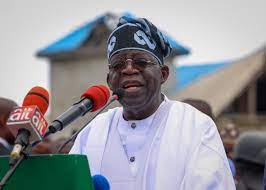President Bola Tinubu has restated his administration’s commitment to ensuring that millions of Nigerians currently lacking access to electricity are provided power supply as part of ongoing initiatives to grow the economy and improve the socioeconomic wellbeing of ordinary citizens in the country.
The President, whose speech was read by the Minister of Power, Adebayo Adelabu, made the pledge on Monday at the two-day Mission 300 Africa Energy Summit held in Dar-es Salaam, Tanzania.
While commending the African Development Bank (AfDB), the World Bank Group, and development partners for their initiating the Mission 300 project and their collective pledge to give electricity access to 300 million people in Africa by 2030, he called on African leaders to prioritise energy access, emphasising collective action.
The President said: “Let us work together to create a brighter future for our citizens—where every African can access reliable and affordable energy. A future where our industries thrive, our economies grow, and our people prosper.”
Tinubu also used the forum to reaffirm Nigerian government’s commitment to providing reliable, affordable, and sustainable electricity to Nigerians lacking access to power supply by 2030, stating that “this is an ambitious goal, but we can achieve it together. As Nigeria’s President, I am committed to making energy access a top priority.”
Speaking on the progress made by Nigeria, with the support of international development partners, to boost power supply, he acknowledged AfDB’s $1.1 billion, which is expected to provide electricity for 5 million people by the end of 2026, while the Federal Government’s $200 million in the Nigeria Electrification Project will provide electricity for 500,000 people by the end of 2025.
The President expatiated: “We also look forward to the AfDB’s planned $700 million investment in the Nigeria Desert to Power programme and its planned $500 million facility for the Nigeria-Grid Battery Energy Storage System, which will provide electricity for an additional two million people.
“We have equally begun making plans to ensure the effectiveness of the World Bank’s $750 million support for expanding Nigeria’s distributed energy access via mini-grids and standalone solar systems that will provide access to power to 16.2 million people,” he said.
“As we all know, Africa is rich in energy resources, yet millions of our citizens still lack access to reliable and affordable energy. This situation is unacceptable. It is our responsibility to take collective action to change this narrative”, he added.
This is even as Tinubu highlighted ongoing investments in renewable energy, particularly solar power in the country, adding that “for example, the federal government is in the final stages of developing an electric vehicle (EV) charging infrastructure programme emphasising renewable energy and establishing stricter vehicle emission standards.
“This will ease adoption barriers, galvanise partnerships, and provide affordable EV financing options. I am pleased to announce that the first 100 electric buses are already in the country.
“Nigeria’s energy sector is growing as a direct result of our reforms. The Nigerian government continues incentivising those interested in investing in renewable energy, oil and gas energy efficiency”, Tinubu stressed.
He explained that encouraged by Nigeria’s successful attraction of over $6 billion in new investments into its energy sector in 2024 alone, his administration was determined to build on the current milestones in electricity supply this year and beyond.
The two-day Summit, hosted by the government of Tanzania in collaboration with the African Union, the African Development Bank (AfDB), and the World Bank Group, adopted the Dar-es Salaam Declaration which focused on providing access to electricity for 300 million people in Africa by 2030.
Following the reading of the Declaration, leaders from Nigeria, Chad, Côte d’Ivoire, the Democratic Republic of the Congo, Liberia, Madagascar, Malawi, Mauritania, Niger, Senegal, Tanzania, and Zambia signed the document through which the leaders from the 12 countries expressed their commitment to ensuring electricity access for their citizens in the next five years.






